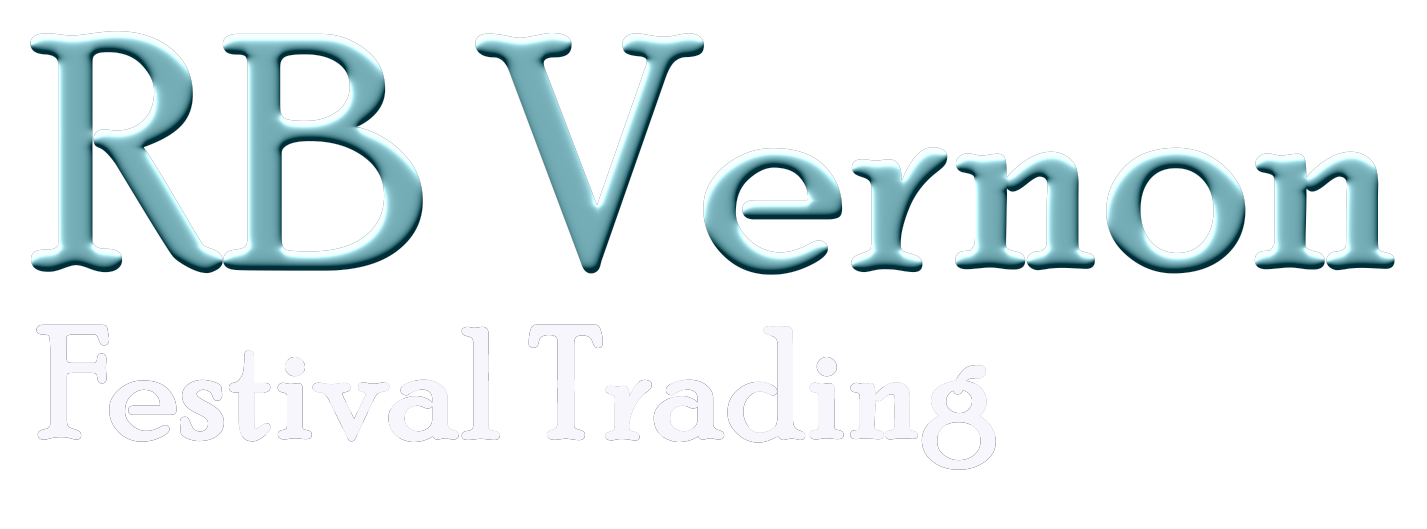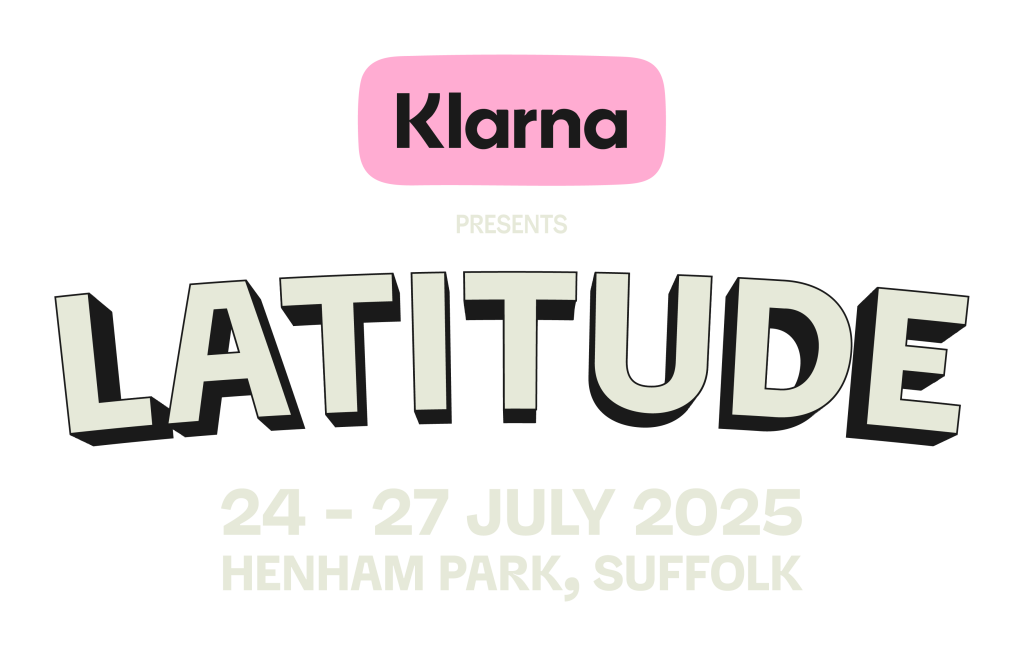
Build 30 June -24 July 2025
Break 28 July – 08 August 2025
Site Health & Safety Induction
Latitude Festival is committed to the Health, Safety and Welfare of all employees, contractors, and visitors involved in the operation of the event site.
To ensure all employees, contractors and visitors have the information to cooperate with the Event Management in maintaining a safe working environment and to fulfil the legal requirements of Health & Safety legislation everyone is required to complete this Health and Safety induction before arriving to site.
Latitude Festival maintains a zero-tolerance policy towards abusive behaviour, harassment (including sexual harassment), discriminatory comments, and offensive language. Anyone who behaves inappropriately towards any person present at the Event site, including, but not limited to, staff, crew, performers, contractors, or attendees, will be removed from the Event site immediately. Where necessary, incidents may also be reported to the appropriate authorities.
If whilst working at Latitude Festival, you experience or witness any of the above please inform your line manager/supervisor.
Induction guide
You will only be permitted access to site if you have:

Completed the online Health and Safety induction and provided your details when requested

Please bring the confirmation email and photo ID the first time you visit
Festival Production Office
Blue Gate 1. Henham Park, Beccles, NR34 8AW

Site operating hours are 08:00 to 20:00 unless by prior agreement.
Event management team
Becky Gundry
Event Manager
Festival Republic
Ross Taggart
Site Manager
Festival Republic
Chris Merrison
Health & Safety
Festival Republic

Diversity & Inclusion
Our festivals are committed to fostering an inclusive environment where discrimination against any individual based on their age, disability, gender, marital status, race, or beliefs is not tolerated. This commitment is at the heart of our festivals, ensuring a space for everyone to work in and enjoy.
24% of the UK’s population is disabled, and not all disabilities are visible – for example a person may be neurodivergent, have a mental health condition, a learning disability or a severe lung condition.
People are disabled by barriers or obstructions in society rather than by their impairment or difference.
These can be physical, like not providing any accessible toilets. People’s attitudes can also create barriers, like assuming a disabled person can or can’t do something.
We are required to remove barriers for disabled customers before they arrive on site. As part of our commitment to removing barriers for disabled customers, we recognise the crucial role you play. Your actions and attitudes are instrumental in creating an inclusive festival environment. Please remember:
- To treat everyone equally and with respect;
- Do not assume you know someone’s requirements – please always ask;
- Please consider whether there are any barriers or obstructions to disabled customersin the area within which you are working and do what you can to ensure those are removed.
We take pride in the diversity of our festivals and customers. Everyone working at our festivals shares the responsibility to respect and uphold our values and it is also a legal obligation. We have a zero-tolerance policy for any form of discrimination, bullying, or harassment. If you witness or experience any behaviour that undermines this, regardless of its severity, you must report it immediately to Event Control.
Personal protective equipment (ppe)
As a minimum you will need to wear a Hi-Vis tabard.
Hi-vis
It should meet the requirements of EN ISO 20471:2013 and ensure you are clearly visible
(Yellow, Orange or Red only)
Footwear
You should wear appropriate footwear for the work activity and environment
Headwear
Head protection must be worn when operating in areas of overhead works
Other PPE as detailed in your RAMS may also be required
Body Harness
Eye Protection
Protective Gloves
Dust Mask
First Aid
First Aid is available at the production office
A defibrillator is located at the production office
All accidents, near misses MUST be reported to the production office
First aid
Defibrillator
welfare
There are toilets with handwashing facilities in the Production area for you to use during your time on site as well as in other areas of the site.
Hand sanitiser will be provided at crew catering and Production areas.
Please ensure that you wear appropriate clothing for the weather on site.
There will be a drinking water point and hot drinks in the Production areas. Please ensure that you stay hydrated.
Please bring a reusable bottle to refill at the water point.
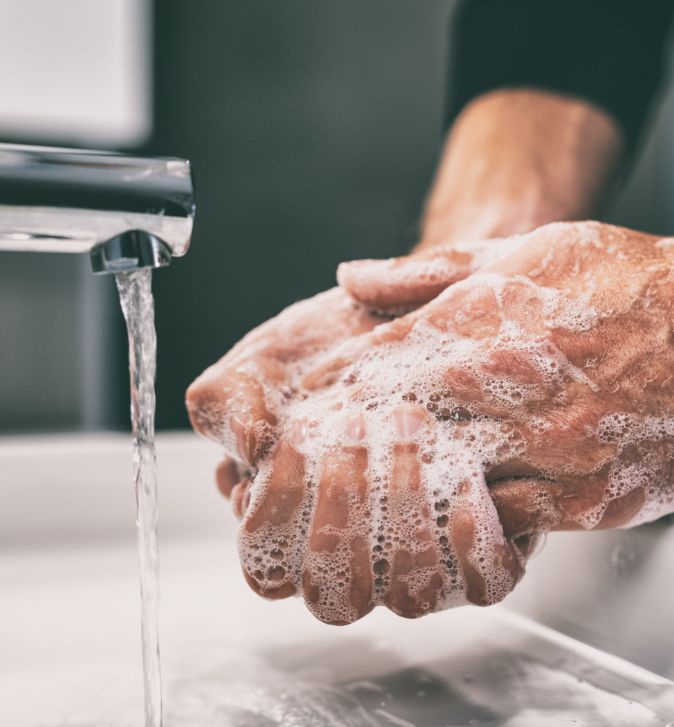
Adverse Weather
A detailed Adverse Weather Management Plan is in place and held in the Production Office
Certain weather conditions such as high winds or lightning will impact work activities. You may be required to stop working on the advice of the Health & Safety Team
If you need to seek shelter for safety you will be directed to the nearest safe refuge
Daily weather forecasts are available from the Production Office
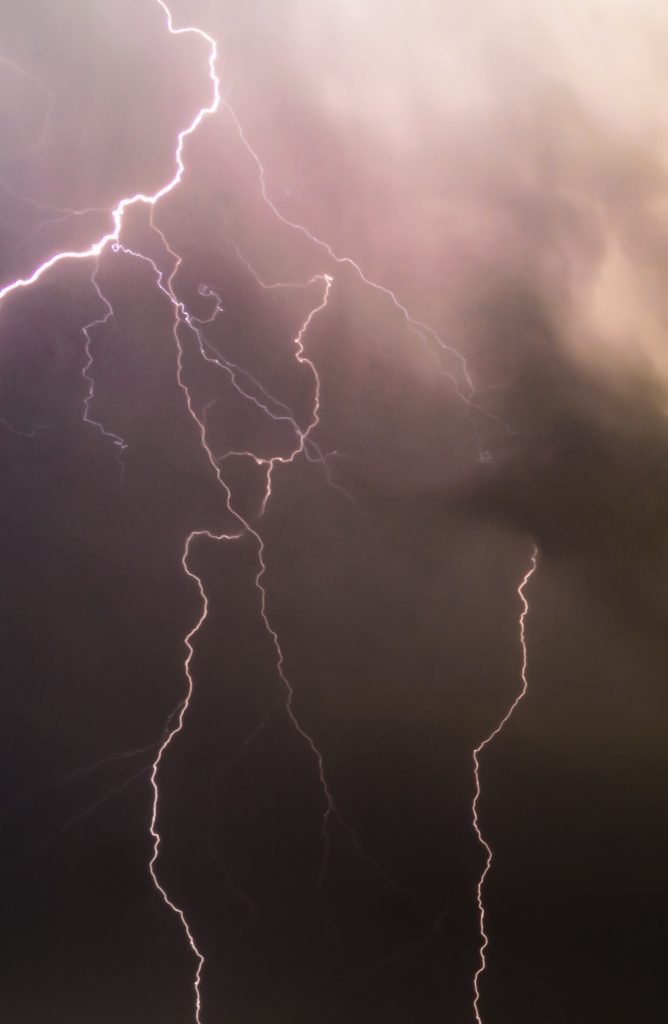
fire
If you discover a fire:
Contact the Production Office immediately
Warn those around you by shouting “Fire Fire Fire”
If you are trained to do so and firefighting equipment is available attempt to put out the fire.
Evacuate by the nearest exit. These will be marked with running man signs.

The emergency assembly point is the Obelisk Arena
W3W ///defenders.lion.wakes.
Counter Terrorism

Run

Hide

Tell

Please ensure all bags coming to site are clearly labelled

In the event of an evacuation, please report to your line manager.

Please report anything suspicious or anyone acting suspiciously to Production/ Licensing/H&S.

No matter how small it may seem, it is better to say something than nothing.

If there is a major incident, please follow all given instructions and do not take matters into your own hands.
We encourage you to complete The ACT E-learning training session
Driving any vehicle on site
The site speed limit is 10 mph reducing to 5 mph in pedestrian areas
Do not use your mobile phone when driving
You must only carry one passenger per seat
You must not carry passengers in vehicle load areas
Only drive vehicles for which you are licensed
Do not leave keys in unattended vehicles
Do not leave engines running when stationary
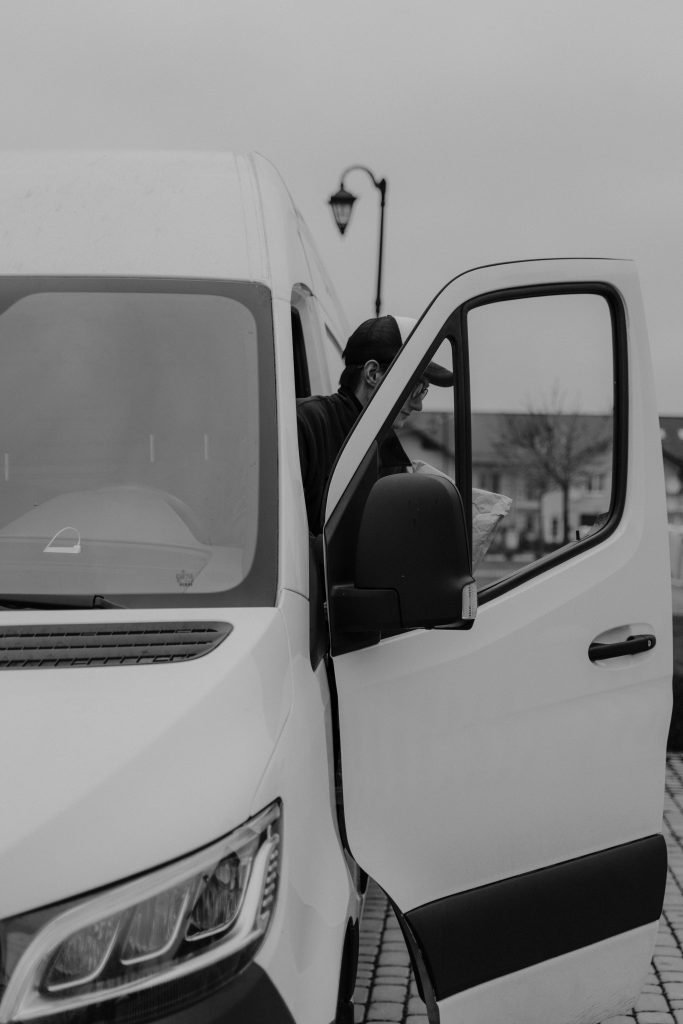
Buggy Driving
All buggy drivers must have a full driving licence or recognised plant licence.
Plant & Machinery
All plant drivers must have a valid plant licence. This must be produced to the Production Office prior to operating any vehicles on-site.
Any machinery requiring specialist training must only be operated by licensed staff.
Dust
The Control of Substances Hazardous to Health Regulations 2002 (COSHH) requires that exposure to materials that cause ill-health are adequately controlled:

Many work activities can create dust, and exposure to any dust in excessive amounts can create respiratory problems.

You must take all reasonable steps to remove or reduce dust from your work activities and protect your employees and those affected by your work.

You must provide adequate PPE for any staff who are still affected by residual dust or are expected to work in potentially dusty environments.

Vehicle movement in dry conditions is a significant cause of airborne dust.

To reduce this Festival Republic will:
Ensure speed limits are set and adhered to.
Keep vehicle movement to a minimum.

And:
In high risk areas the use of water spray to dampen roadways will be used.
Working
at height
The Work at Height Regulations 2005 requires that all activities must be adequately planned, supervised, and carried out by competent people. Do you need to work at height? Can the work take place at ground level? If no, then:

Is there a safe means of access and appropriate fall protection available?

Make a visual check of your equipment and platform before use. This includes toe boards being in place, no dangerous gaps in the platform, and correct guardrails in place. (Will it hold your weight?)

Take special care of yourself and your materials when on a sloped surface at height, as the slope increases the risk of a fall.

Harnesses must be used when working above head height, and securely fastened to a fixing point at all times.

When working at height, or in a Head Protection area, or when there is Work at Height going on above you, you must wear Head Protection.

If you have any concern about Work at Height, please contact the Health and Safety team to discuss it.
Manual
handling
To minimise the risk of injury from lifting and carrying, please keep in mind that there is a difference between what someone can lift, and what someone can safely lift. The following principles may help.

Plan the lift How heavy is the object? Are you wearing appropriate footwear? Can you clear obstructions between the object now and where you are setting it down? Would it be safer to lift with another person?

Adopt a stable position: Feet apart, well balanced.

Starting the lift well: Get a good grip on the object, lift with your legs, do not use your back as a lever. Move smoothly, avoid quickly moving the object. Place the object down midway on another surface if needed before you are upright.

Carrying the object: Avoid twisting your back, keep the load close to the waist with the heavier side towards you. Keep your head up and look for anything that may be in your way, or another surface to put the object down on if needed.

Setting the object down: Continue to keep the object close to the waist to avoid overstretching, lower the object down with your legs rather than by leaning with your back.
Portable Appliances and Power Tools
Under the Provision and Use of Work Equipment Regulations 1998, all work equipment, including Power Tools, is required to be:
Fit for purpose & In good repair
Operated by a competent person, with appropriate PPE
Suitably protected and guarded, meaning it is inherently safe to use.
Key managers shall ensure that all activities within their section are properly planned and those working with power tools are doing so safely.
Drones
No Drone Zone
Please note that the event site is a no drone zone. We cannot permit the use of drones within or near the site.
Site Specific Hazards
Not all hazards are identified on the Hazard Map. A Permit to Work may be required for some tasks. You will be advised by the Health & Safety Team if this is necessary.
Each hazard will be written up individually, based on information from pre site meetings and provided in the Event Risk Assessment with photographs or hazard map images where appropriate.
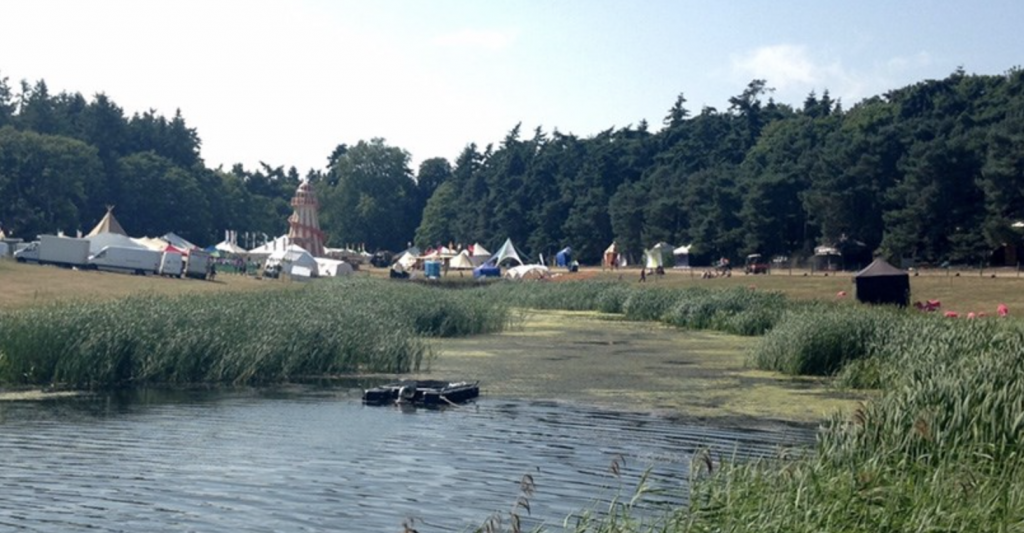
Lake
No lone working to be carried out around the lake. A permit to work pass is required prior to starting work around the lake, and any work carried out in this area must be approved by the Event Safety Coordinator. Only authorised persons identified by the permit will be permitted to work within this area. Ensure life jackets are available for those working in this area.

Barn
Due to the presence of Chrysotile in cement products within the barn such as guttering and corrugated sheets access is only permitted under a Permit to Work issued by the Health & Safety Team.
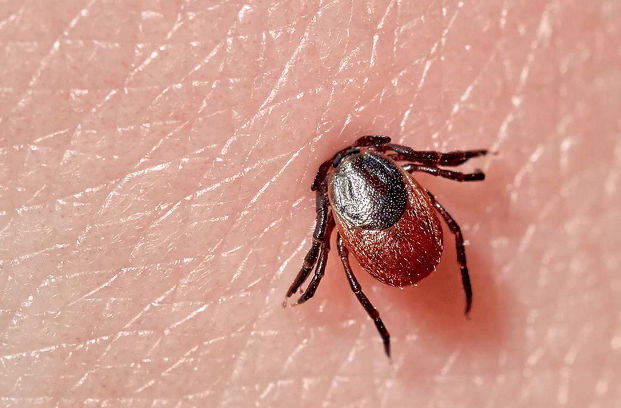
Ticks
Ticks are small, spider-like creatures which feed on the blood of birds and mammals, including humans. They vary in size, usually between 1mm to 1cm long. They have either 6 or 8 legs.
Where ticks are found
Ticks feed off of a variety of mammals and birds, including squirrels, deer, sheep and garden birds. This means they’re usually found in areas with these animals, like:
- woodland
- moorland
- grassy areas
- gardens
Ticks don’t fly or jump but climb on to animals or humans as they brush past.
When is tick season?
Tick season is usually between March and October but it may last longer. This is because wet weather and warmer temperatures make ticks active for longer in the year.
However, ticks are something that we should think about all year round. This is because some symptoms of a tick bite, including inflammation, can take 2 to 3 months to develop.
About tick bites
Tick bites aren’t usually painful and sometimes only cause a red lump to develop where you were bitten. However, in some cases they may cause
- swelling
- itchiness
- blistering
- bruising
What diseases do ticks carry?
In Scotland, the most common disease ticks transmit is Lyme disease (also known as Lyme borreliosis). They also carry other diseases but these mainly affect animals.
In other parts of the world, ticks can spread different diseases, some of which can cause serious illness in both humans and animals
Preventing tick bites
Do
- keep to footpaths and avoid long grass when out walking
- wear appropriate clothing (a long-sleeved shirt and trousers tucked into your socks)
- wear light-coloured fabrics that may help you spot a tick on your clothes
- use insect repellent on exposed skin
- check your skin for ticks
- check your children’s head and neck areas, including their scalp
- make sure ticks are not brought home on your clothes
- check that pets do not bring ticks into your home in their fur
Removing a tick bite
If you’ve been bitten by a tick, you should try to remove it as soon as possible to reduce the risk of getting a tick-borne infection, like Lyme disease. This is a bacterial infection that causes a pink or red circular rash to develop around the area of the bite.
If you suspect that you have a tick bite, complete our self-help guide to assess your symptoms and find out what to do next.
Alcohol
and Drugs
There is a zero tolerance for being under the influence of alcohol or illegal drugs. You should inform your employer if you are taking any prescribed or over the counter medication that could affect your work.
Anyone suspected of being under the influence of alcohol or illegal drugs will be removed from site immediately
Yellow / red
card policy
Any breach of the site rules can result in a yellow or red card being issued by the Event Management Team.
Examples are
Not wearing Hi Vis after being warned
Speeding on site after being warned
Ignoring Health and Safety Regulations
Ignoring the Site Rules
Not reporting incidents to the Site Office
Working at height without appropriate PPE or fall protection
Not working according to the procedures outlined in the Supplier’s own Risk Assessment and Method Statement
Food Traders not complying with Environmental Requirements.
Yellow Card = Record of offence
Red Card = £100 fine for the Supplier, or a day’s pay docked if a member of our staff.
(We reserve the right to permanently remove staff or contractors from site.)
Ensuring safety is everyone’s responsibility. If you see something that you think could be made safer, report it and do something about it. Look out for people that might need help and help them. If you spot something that doesn’t look right to you, please report it.
Festival Republic Privacy Policy
Next